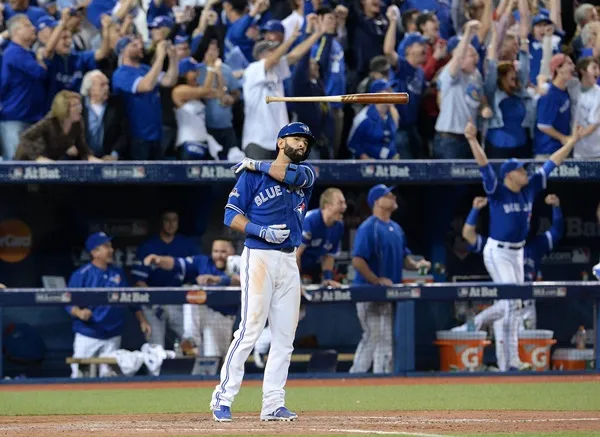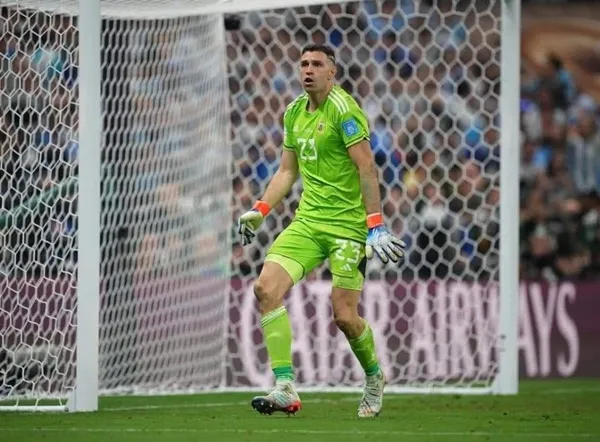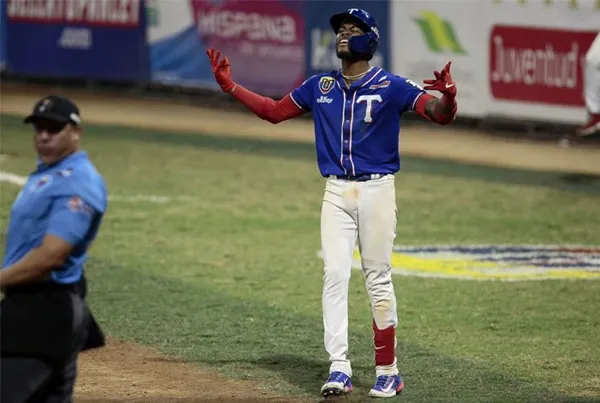Estoy en contra del llamado “perreo” en los deportes, esas celebraciones burlescas, irrespetuosas y altaneras que suelen realizar algunos jugadores después de efectuar una acción destacada. El término se trasladó desde el género musical reggaetón, propio de la cultura urbana latina, y desde hace un buen rato está presente en el béisbol y el fútbol, a mi parecer convirtiéndose en un pésimo ejemplo para los niños ya que desde pequeños se les incitan a creer que pueden estar por encima de su club, de sus adversarios y del deporte que practican. Este “perreo” se ha observado muy poco en el baloncesto de la NBA debido al menor porcentaje de latinos en cancha y además la liga, para evitar inconvenientes, desde hace años sanciona como falta técnica cualquier gesto irrespetuoso contra los rivales.
Esto nos lleva principalmente a prestar atención al béisbol debido a la cantidad de jugadores latinos que hacen vida en las Grandes Ligas. Batear un cuadrangular, ponchar a un bateador, realizar una atrapada acrobática o hasta robar una base se ha convertido en motivo para imitar bailes, gestos y frases de reggaetoneros, lo que a su vez inició una escalada de celebraciones que si bien pueden agradar a una parcela de los fanáticos de un equipo, constituye una falta de respeto contra quienes practican el deporte. En este punto, es de hacer notar que las redes sociales y otros medios han contribuido a acentuar estos “perreos” al hacer virales reels donde se observa a los jugadores menospreciar al rival y sus seguidores.
¤¤¤
I am against the so-called "perreo" in sports, those mocking, disrespectful and haughty celebrations that some players usually perform after performing an outstanding action. The term was transferred from the reggaeton music genre, typical of urban Latin culture, and has been present in baseball and soccer for quite some time, in my opinion becoming a bad example for children since they are incited to believe that they can be above their club, their opponents and the sport they practice from an early age. This "perreo" has been observed very little in NBA basketball due to the lower percentage of Latinos on the court and also the league, to avoid inconveniences, for years has sanctioned as a technical foul any disrespectful gesture against rivals.
This leads us to pay attention to baseball due to the number of Latino players who make their living in the Major Leagues. Hitting a home run, striking out a batter, making an acrobatic catch or even stealing a base has become a reason to imitate dances, gestures and phrases of reggaetoneros, which in turn started an escalation of celebrations that while they may please a portion of the fans of a team, constitute a disrespect against the followers of the sport. At this point, it should be noted that social networks and other media have contributed to accentuate these ¨perreos" by making viral reels where players are observed belittling the rival and their fans.
¤¤¤

Considero que de ninguna manera el “perreo” enriquece al deporte ni me parece divertido porque en la mayoría de los casos suele terminar en peleas dentro y fuera de las instalaciones deportivas. Creo que si un jugador y su equipo desean celebrar un triunfo, deben hacerlo sin involucrar al rival, son adversarios únicamente dentro del terreno, pero fuera de él son compañeros en la práctica de una disciplina deportiva y por lo tanto deben comportarse como profesionales. Celebrar de forma altanera logros efímeros, dañando las imágenes de un juego, no debe naturalizarse, debería ponerse un límite al egocentrismo de los jugadores para que entiendan que jamás estarán por encima del uniforme que llevan ni de la institución que representan en ese momento.
La recurrencia habitual, sobre todo en los medios, de promover los “perreos” evidencia que también la manipulación rinde sus frutos, al presentar como héroes y modelos a seguir a deportistas que actúan como maleantes. Observando el segundo juego de la final del béisbol venezolano, donde Maikel García conectó un jonrón, y cuya celebración propició una pelea colectiva que resultó vergonzosa para quienes acuden al estadio en plan familiar. Es de preguntarse entonces cuál es el límite del deporte y del respeto por el juego. Al respecto, la Liga Venezolana de Béisbol Profesional tomó como medida disciplinaria expulsar de inmediato al jugador que actúe de forma irrespetuosa contra un contrario o el público, aunque parezca tarde para revertir las consecuencias.
¤¤¤
I consider that in no way the "perreo" enriches the sport nor do I think it is fun because in most cases it usually ends in fights inside and outside the sports facilities. I believe that if a player and his team wish to celebrate a triumph, they should do so without involving the rival, they are adversaries only on the field, but off it they are partners in the practice of a sporting discipline and therefore should behave as professionals. Celebrating ephemeral achievements in a haughty manner, damaging the images of a game, should not be naturalized, a limit should be placed on the egocentrism of the players so that they understand that they will never be above the uniform they are wearing or the institution they represent at that moment.
The usual recurrence, especially in the media, of promoting the "perreos" is evidence that manipulation also pays off, by presenting as heroes and role models athletes who act as thugs. Observing the second game of the Venezuelan baseball final, where Maikel García hit a home run, and whose celebration led to a collective fight, it is worth asking what is the limit of sports and respect for the game. In this regard, the Venezuelan Professional Baseball League took the disciplinary measure of immediately expelling a player who disrespects an opponent, even if it seems too late to reverse the consequences.

¤¤¤
No es la primera ocasión que se ensucia el béisbol profesional por querer imponerle una cultura que está alejada del deporte. Ahora mismo, el mejor beisbolista del planeta es Shoei Ohtani y jamás le he visto realizar un baile mundano tras conectar un jonrón o ponchar al cuarto bate de otro equipo, tampoco observé a los japoneses comportarse como desadaptados cuando ganaron el Clásico Mundial.
Cuando analizaba lo acontecido, vino a mi mente una escena y diálogo de la película Coach Carter, protagonizada por Samuel L. Jackson, donde el entrenador recriminaba la actitud de sus jugadores al derrotar sus adversarios.
― ¿Desde cuándo ganar no es suficiente?
― ¿Jugar no es suficiente?
―No, ustedes tienen que humillar a su oponente. Burlarse de él después de cada anotación. Ustedes ganaron cuatro partidos la temporada pasada. Cuatro. ¿Qué les da derecho de burlarse del juego que amo, hablando basura y mofándose?
―¿Qué les da derecho para llevar a Richmond en el pecho y actuar como patanes?
―Ellos también lo hicieron.
―¿Y?¿Ustedes no pueden mostrar clase?¿Actuar como campeones?
¤¤¤
This is not the first time that professional baseball has been dirtied by trying to impose a culture that is far from the sport. Right now, the best baseball player on the planet is Shoei Ohtani and I have never seen him perform a mundane dance after hitting a home run or striking out another team's fourth baseman, nor did I observe the Japanese behaving like misfits when they won the World Baseball Classic.
As I watched what happened, a scene and dialogue from the movie Coach Carter, starring Samuel L. Jackson, came to mind, where the coach reproached his players' disrespectful attitude towards their opponents.
- Since when is winning not enough?
- Playing is not enough?
-No, you have to humiliate your opponent. Make fun of him after every touchdown. You won four games last season. Four. What gives you the right to mock the game I love, talking trash and taunting?
-What gives you the right to wear Richmond on your chest and act like jerks?
-They did it too.
-And can't you guys show some class? Act like champions?

Texto traducido con DeepL.
Text translated with DeepL.